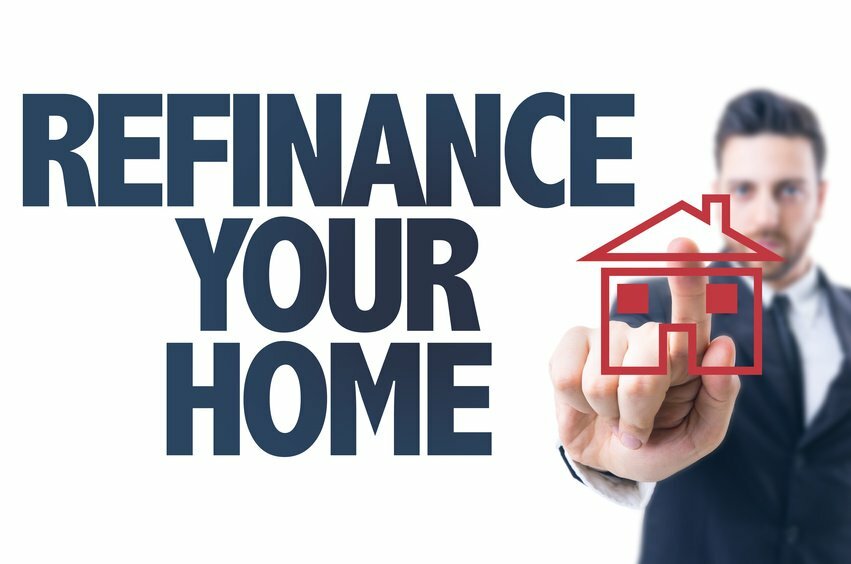Ask Brian is a weekly column by Real Estate Expert Brian Kline. If you have questions on real estate investing, DIY, home buying/selling, or other housing inquiries please email your questions to [email protected].

Question from Ryan in NJ: Hi Brian. My wife and I bought our home a little over a year ago. We had trouble qualifying for a mortgage and pretty much jumped on the only opportunity given to us at the time. Without going into all of the financial details, at the time we had a credit score of 634 that qualified us for an interest rate of 4.51% on a $340,000 loan. The good news is that we’ve done well settling into our new homeowner’s lifestyle. Although our finances are still tight, our credit score is now about 675. Considering the additional closing costs, do you think it would be smart if we refinanced so soon after taking out a mortgage?
Answer: Hello Ryan. People that bought their homes as recently as a year ago are taking a serious look at refinancing based on even lower interest rates today. As bad as the pandemic has been, one silver lining is the historically low mortgage rates. Something to understand is that the low rates are mostly being driven by the need to stimulate the economy. Specific to home purchases, the market has remained relatively resilient. If it weren’t for an economic recovery being needed, mortgage rates very well could be higher than they currently are. Your take away should be that no one can be sure how long these historic lows will remain and interest rates aren’t likely to go any lower. Even if you recently took out a new mortgage, it’s worth at least running the numbers to consider refinancing.
As little as a half-point in interest can make a big difference in your monthly payment and how much you pay over the life of the loan. Ryan, in your case, you very well could be looking at lowering your interest rate a full percentage point. That would make a big difference to both your monthly payments today and the total amount of interest that you pay over the entire length of the loan.
Interest rates vary daily but right now, you could very well qualify at about 3.43% with a credit score of 675. However, your thinking is correct to be concerned about the additional closing costs. We’ll assume your closing costs will be 3% of an outstanding $340,000 balance. That means refinancing will cost you about $10,200. That’s a big chunk of change and I’m going to assume you’ll roll the cost into a new loan. That means you’ll be refinancing about $350,200. Those aren’t the exact numbers but they make good round numbers to work with.
One thing that you might be concerned with is if the value of your house has appreciated to the new amount that you’ll be borrowing (and whether the appraisal will support the new loan amount). That’s a legitimate concern. Especially if you think you’ll be selling the house within the next 5 to 7 years. You don’t want to find yourself trying to sell the house for less than you owe on it. However, if you’ve taken to homeowner thinking the way you say you have, you’ll probably stay in your home for a longer period of time. In that case, it’s better putting more emphasis on your monthly payments and long term interest costs.
You’ve already made your down payment so that doesn’t need to be part of the calculation. We can get right to the monthly mortgage payments (taxes, insurance, and HOA fees are not included). That makes the calculation simple because all we need to do is compare $340,000 at 4.51% to $350,200 at 3.43%.
So, here is the basic breakdown:
$340,000 at 4.51%
Monthly payment = $1,704
Total interest = $273,885
$350,200 at 3.43%
Monthly payment = $1,558
Total interest = $211,246
Ryan, I don’t know about you but to me, the math makes it clear that refinancing is the smart thing to do. But let’s look at this one more way. You’re going to be saving $146 each month ($1,704 - $1,558). So, the next question to ask is how long it will take to recover additional closing costs. All you need to do is divide the $10,200 by the $146 in monthly savings. It’s going to take you about 70 months or 5.8 years to recover the closing costs. Most people live in their homes for longer than 6 years, so all of the numbers work for you.
The bottom line is that you’ll recover your costs in less than 6 years and the entire time you’ll be making monthly payments that are $146 less than your current payments.
One other thing that I could suggest is that work on improving your credit score a little more so that you qualify for an even lower interest rate. With a little better credit score, you might get the interest down under 3%. You might also look at a 15-year fixed loan. The 15-year interest rate would be lower but your monthly payment would be higher. Considering how low fixed-rate mortgages are right now, I’d be against an adjustable-rate because chances are significant that rates will be going up significantly sometime in the future.
What approach do you suggest with today’s historically low rates? Please leave your comment.
Our weekly Ask Brian column welcomes questions from readers of all experience levels with residential real estate. Please email your questions or inquiries to [email protected].